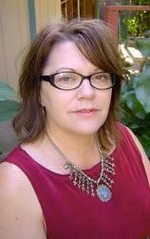
My teaching philosophy is to create student-centered classrooms where students understand that they have a crucial role to play in the success of the teaching and learning dynamic. Culture and society are complex, powerful products of history and human action. Fostering a greater understanding of the forces that influence culture and society including attention to those factors that create, reproduce, or alleviate social inequalities is an ethic that guides my teaching. I strive to provide students with analytical and methodological tools for understanding how the world works as well as recognition of their roles within it.
When I approach the design of a particular course, I match course content with complimentary objectives for student learning. My strategies for helping students meet these objectives draw on a combination of pedagogical techniques including lectures, reading assignments, discussion, research projects and analyses that creatively engage students. Because different students learn best through different styles, I strive to incorporate multiple teaching methods and devise a variety of opportunities for students to demonstrate their learning processes.In fostering an active and productive learning environment, I find that small group exercises, individual student presentations, role-playing, debate, and "show and tell" activities motivate student learning. I also find technology to be of great assistance. For example, establishing a forum for email discussions creates an alternative environment conducive to learning that extends beyond the formal classroom.
My goal is to promote student self-confidence while enabling students to demonstrate growth in knowledge and critical thinking and research skills. I accomplish this by validating student's personal experiences as a valuable classroom resource, linking course material to current events, and encouraging students to make connections relevant to their local worlds. If students are to be agents of their education, they must learn research skills. When students learn how to ask questions and then how to pursue the answer to that question, it is empowering. I emphasize the need to examine sources of information critically. This is particularly important now as the Internet is serving as a ready source of information for the undiscerning student. My approach to student research is to encourage students to use primary sources, to develop skills in interviewing and participant-observation, and to allow students the opportunity to participate in professional research projects.
I will offer students the opportunity to share the experience of research and discovery by collaborating in my ongoing and future research. It is important that students have the opportunity to conduct research on subjects that move out of the simple, removed, or theoretical context of the classroom, to engage with current events and matters of the real world. Offering service learning courses that connect student research with issues that relate to their community is one way that I ngage students with real world research and to foster their civic participation.
